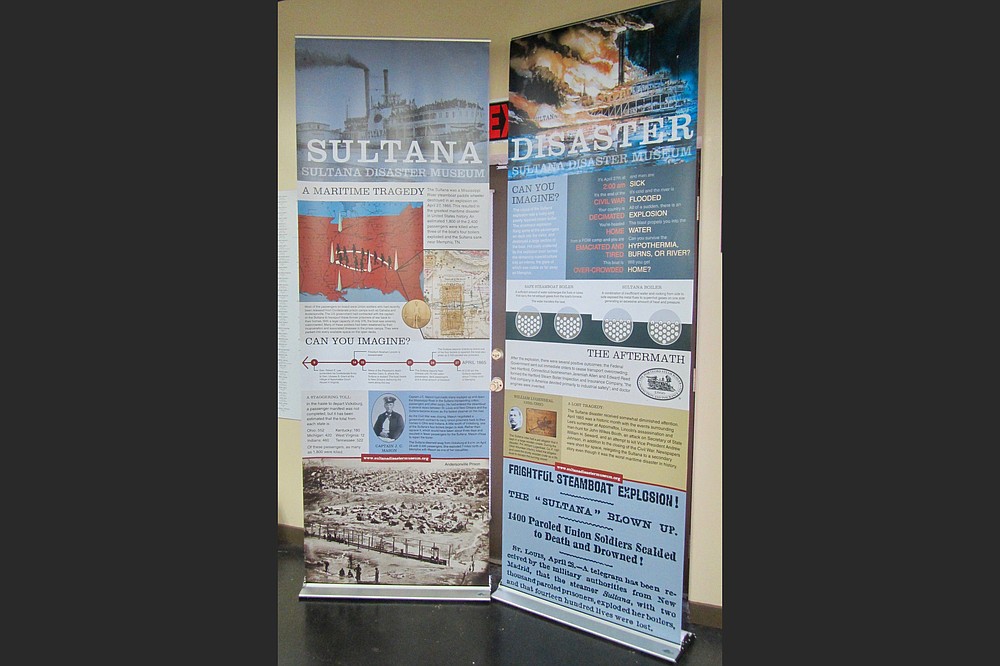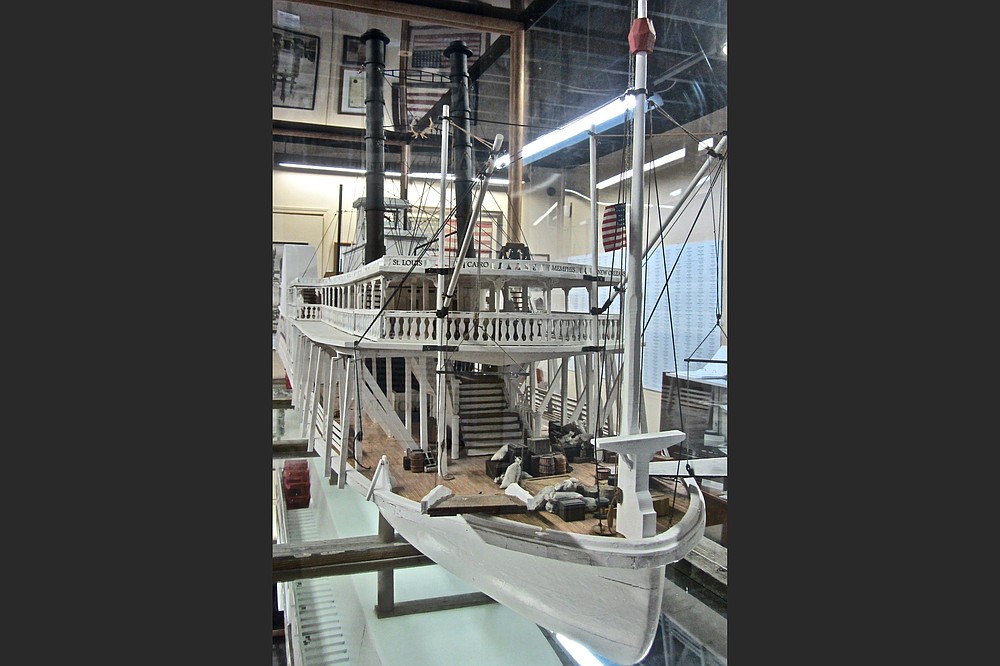
MARION — An Arkansas steamboat disaster that claimed more victims than the Titanic's fabled sinking merits a museum large enough for a full telling of the tragedy.
Fundraising for such a vastly expanded facility is being planned in Marion, near the Crittenden County location where the Sultana burned and sank on April 27, 1865, after a 2 a.m. boiler explosion.
Some 1,800 or more passengers and crew were killed, most of them Union soldiers being ferried home on the Mississippi River from Confederate prison camps. The Titanic's 1912 loss in the North Atlantic took 1,512 lives.
While the expansion plans develop, as reported recently by the Arkansas Democrat-Gazette's Bill Bowden, the existing Sultana Disaster Museum opened five years ago does its best to give visitors a sense of the catastrophe in just 1,000 square feet of space.
The compact layout tells the story of what it calls "The Forgotten Tragedy." The mind-numbing loss on the Mississippi got scant news coverage in a nation absorbed by the Civil War's ending and Abraham Lincoln's assassination. A century and a half later, it remains something of a historical footnote.

The museum, near Marion's stately Crittenden County Courthouse, makes clear the human dimensions of the sinking. It also supplies the background that led to the packing of 2,200 or more men (and a few nonmilitary women) aboard a vessel only 265 feet long with a legal passenger capacity of 376.
Exhibits portray the miseries that the Union troops aboard the Sultana had survived at the infamous Andersonville camp in Georgia and the less inhumane Cahaba facility in Alabama. They felt blessed to have survived for repatriation when so many of their comrades had died of disease and mistreatment.
Financial avarice is pointed out as the main cause of the overcrowding on the Sultana, which sailed north from Vicksburg with so many former POWs that there was hardly room to lie down. Evidently the vessel's captain had bribed a Union officer to grossly overload the boat because the government was paying $5 per enlisted man and $20 per officer for transport north.
The Sultana had docked in Vicksburg to have leaking boilers patched. But one or more boilers exploded in the middle of the night about eight miles north of Memphis, killing hundreds of passengers instantly. Most others were forced to jump into the chilly Mississippi, where hypothermia and drowning took a heavy toll.

A centerpiece of the present museum is a 14-foot-long model of the Sultana crafted by Gene Eric Salecker, a military historian who owns a large collection of the boat's artifacts and memorabilia. He is the author of "Disaster on the Mississippi," a book about the explosion and fire. On sale at the museum, the paperback contains a list of all those known to have been aboard on April 27, 1865, and whether they died or lived.
The museum has a similar list posted. The tragedy's human impact is spotlighted by dozens of photographs portraying victims, most of them in uniform. Also displayed are a couple of U.S. flags flown at meetings of the Sultana Survivors Association, a yearly event from about 1890 until 1930. The last known survivor, former Pvt. Albert Norris of the 76th Ohio Infantry, died at age 94 in 1934.
Plans for the 17,000-square-foot new museum include additional focus on the first-person narratives of survivors, with emphasis "placed on telling this story through the eyes of those who witnessed it, using printed quotes, audio re-enactments and/or other techniques and technologies."
For now, the exhibit space of only 1,000 square feet strives to recount a horrific event that usually has been mentioned in passing — if at all — in accounts of the Civil War.
Sultana Disaster Museum
- Address: 104 Washington St., Marion
- Hours: 10 a.m.-4 p.m. Thursday-Saturday, 2-4 p.m. Sunday
- Admission: Free, but donations encouraged.
- Information: sultanadisastermuseum.org, (870) 559-6731 or (870) 739-6041

